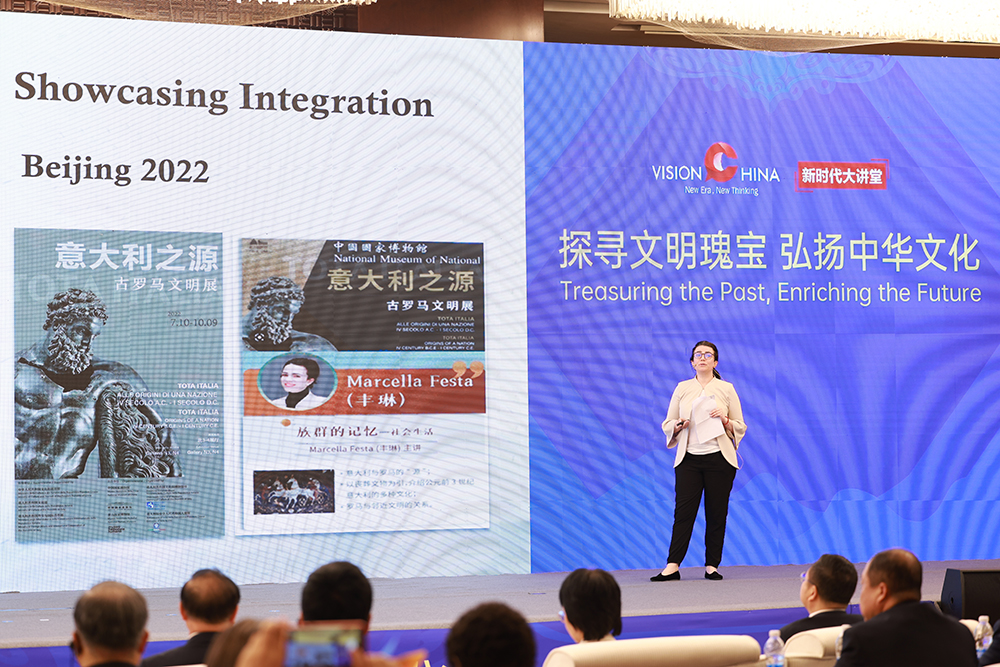Speakers piece together stories of civilizations


Marcella Festa, associate professor at the School of Cultural Heritage of Northwest University
As an archaeologist, it is my privilege to uncover the secrets of ancient civilizations and piece together the stories that have shaped our world. These stories are shared histories, which foster a deeper appreciation for the diversities and commonalities that define humanity, and by doing so, enriches our understanding and educates and inspires future generations.
One of the most iconic examples of cultural integration is the Silk Road, an ancient network of routes that for centuries connected Asian and European civilizations.
In the contemporary world, the legacy of the Silk Road continues through initiatives like China's Belt and Road Initiative, launched in 2013. This initiative not only seeks to foster economic integration but also enhances regional connectivity, facilitating cultural and educational exchanges on a global scale.
One of the ways in which archaeology helps to connect the world is through exhibitions. These exhibitions are not just about showcasing artifacts; they're about fostering cultural exchange and appreciation of cultural diversity.
In academic archaeology, the growing interest in an interconnected world is evident not only in the surge of articles published in academic journals on this topic, but also in the emergence of new journals in Europe and the United States dedicated to the Asian region, with a heavy focus on discoveries from China.
In archaeological research, we have witnessed an increase in collaborations among researchers from different countries, characterized by a growing number of scholarships, visiting student and scholar programs and joint research projects.
Archaeology has another crucial role — challenging and reshaping narratives. It has the power to debunk stereotypes or misconceptions about history and culture, fostering a sense of shared heritage. This shared heritage can promote mutual respect and understanding among different cultures in today's globalized world.

































